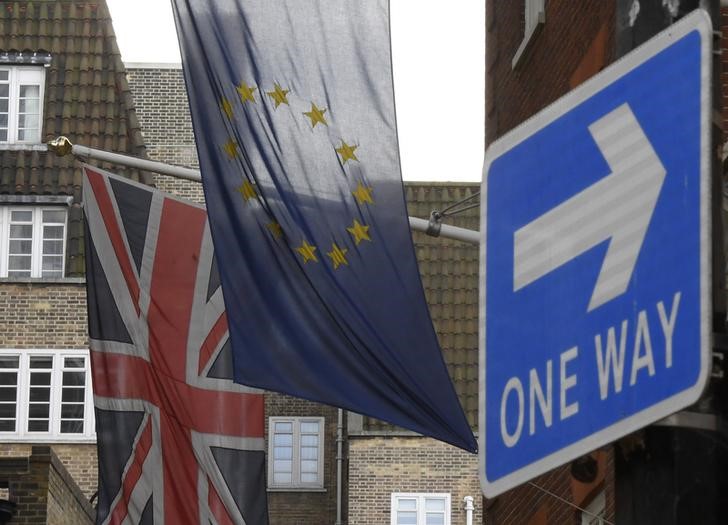By Kirsten Donovan
LONDON - Britain would be foolish to walk away from the European Union without an agreed deal, an EU law specialist said on Wednesday, despite Brexit minister David Davis saying earlier that such a scenario would not be as frightening as some people think.
Speaking in the Reuters Global Markets Forum, Michael Dougan, Professor of European Law at Liverpool University, said it was in the UK's and EU's mutual interest to sort out questions about commitments and liabilities, the position of current migrants, and international agreements where UK interests are dependent on the EU.
Here are excerpts from the conversation:
Question: What happens if there is no deal?
Answer: If we walk away with no deal, we would be inflicting a massive dislocation upon our international relations across a wide range of sectors and interests, now and into the future... The government claims that it wants to be a global power and champion of free trade. If we cannot even negotiate with our closest partners and allies in good faith to resolve key issues what message does it send to the rest of the world about the UK as a serious/credible/reliable partner?
Q: Is it realistic for the British province of Northern Ireland and EU-member the Irish Republic not to have border checks if the UK leaves the single market?
A: The EU applies a single customs approach to the entire customs frontier. There can be special deals on cooperation between the EU and a third country to maximise cooperation and minimise disruption but, as things stand, it seems inevitable that there will be some form of customs control between Ireland and the UK, including Northern Ireland. Ireland - and the UK - will seek as good a deal as possible. But it will be a customs border and customs borders have checks.
Q: Are there any estimates of how much damage could be done to Ulster's economy if there is no agreement?
A: (The views) are pretty unanimous. The Northern Irish economy is especially vulnerable. Not just because of the border, or even general trade disruption from leaving the single market, also because of, for example, reliance upon EU funding for agriculture; reliance upon public sector employment etc.
Q: Playing devil's advocate - maybe (walking away without a deal) sends a message about the EU rather than about the UK?
A: That depends on who does the walking and why. At the moment, the (UK) government is making unrealistic demands within unfeasible timescales. If we continue on that path, the blame for failure should lie squarely with the UK government.
Q: Everything you've said makes me think there's rather a disconnect between politics and the law...
A: Much of the UK political debate is detached from understanding the constitutional, legal and regulatory issues which face both the UK and the EU - issues which impose serious constraints upon what is feasible and indeed what is even possible.
(This interview was conducted in the Reuters Global Markets Forum, a chat room hosted on the Eikon platform. For more information on the forum or to join the conversation, follow this link: https://forms.thomsonreuters.com/communities/)
